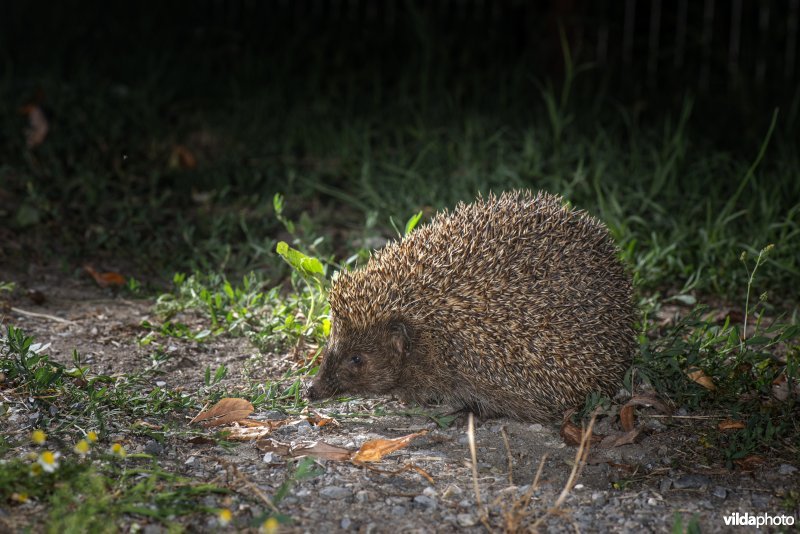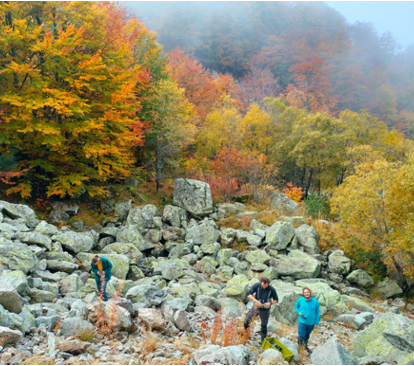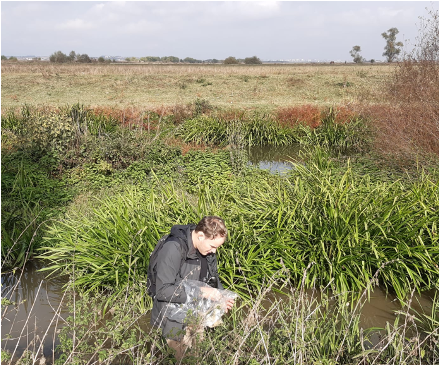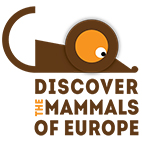Little is known about the mammals of Kosovo. In October 2023 four members of the Dutch Youth Nature Club spent a week in Kosovo searching for (small) mammals and bats. The data they collected will be used for the 2nd European Mammal Atlas (EMMA2).
Summary
A week-long field trip was organized in Kosovo in October to collect data on small mammals for the second edition of the European Mammal Atlas (EMMA 2). These observations were made using live traps, bat-detectors and checking caves for hibernating bats. It resulted in observations of 12 mammal species ; striped field mouse (Apodemus agrarius), wood mouse (Apodemus sylvaticus), bank vole (Clethrionomys glareolus), Lesser white-toothed shrew (Crocidura suaveolens), (Eastern) Common vole (Microtus arvalis/mystacinus), Eurasian harvest mouse (Micromys minutus), Lesser horseshoe bat (Rhinolophus hipposideros), Greater horseshoe bat (Rhinolophus ferrumequinum), Kuhl’s pipistrelle (Pipistrellus kuhlii)/Nathusius’s pipistrelle (Pipistrellus nathusii), Red fox (Vulpes vulpes), Northern white-breasted hedgehog (Erinaceus roumanicus) and European hare (Lepus europaeus). All species found are within their distribution range indeed, but recent published data on their presence in the region is limited. This field trip was possible thanks to the funding provided by the European Mammal Foundation (EMF) and the logistical help of both Svetlana Miteva, EMF and Bardh Sanaja, Environmentally Responsible Action group (ERA), Kosovo.

There is little recent data on the presence of small mammal species in Kosovo or on their population status and trends. Currently, it seems most studies in Kosovo focus on the larger species such as grey wolf (Canis lupus), red fox (Vulpes vulpes), European brown bear (Ursus arctos) and wild boar (Sus scrofa) (Beatham et al., 2020). There is attention to nature in Kosovo, yet many areas are threatened by, among other things, habitat fragmentation, unsustainable exploitation of forest ecosystems and increasing pressure on existing natural areas (due to unplanned constructions and conversion into agricultural fields) (Maxhuni et al., 2014). Preserving areas of biodiversity importance is difficult due to limited research and data on the distribution and status of species.

For this reason, we, four Dutch naturalists, members of the Dutch Youth Nature Club (NJN -Nederlandse Jeugdbond voor Natuurstudie), were asked to survey mammals in Kosovo. We decided to travel through Kosovo for a week and collect as many mammal observations as possible. The main goal was catching and documenting small mammal species, using Longworth and Heslinga live traps, and bat detectors or AudioMoths to register bats. The Balkan Mammal Network provided the live traps, which it received earlier from the Dutch Mammal Society to help local researchers collect data for EMMA2.
Using Google Maps, habitat descriptions and the borders of the grid cells (50×50 km), eight sampling locations were selected that were both promising and (visually) accessible. The sampled habitats included grasslands, forests and wetlands. The traps were placed at altitudes ranging from 500 to 1800 meters and in different habitats. The survey resulted in the capture of six different species: the Striped field mouse (Apodemus agrarius), Wood mouse (Apodemus sylvaticus), Bank vole (Clethrionomys glareolus), Lesser white-toothed shrew (Crocidura suaveolens), (Eastern) Common vole (Microtus arvalis/mystacinus), Eurasian harvest mouse (Micromys minutus). Larger mammals, European hare (Lepus europaeus), red fox (Vulpes vulpes) and one dead specimen of a northern white-breasted hedgehog (Erinaceus roumanicus), were also observed during the fieldwork.

Between the checks of the live traps, we tried to find locations for catching bats using mist nets. However, there was little bat activity. This was probably because it was late in autumn and the nights were cold. Using a bat detector (D240 Peterson) on one relatively warm night, we were able to register foraging bats, yet impossible to catch them as these were mostly around street lanterns. We identified mainly Nathusius’ pipistrelle (Pipistrellus nathusii) or Kuhl’s pipistrelle (Pipistrellus kuhlii) and one Common pipistrelle (Pipistrellus pipistrellus). In forestry areas and near caves there was no bat activity or swarming. During the fieldwork, we visited a tourist cave and inspected other caves to locate hibernating bats. This resulted in two species of hibernating bats: Lesser horseshoe bat (Rhinolophus hipposideros) and Greater horseshoe bat (Rhinolophus ferrumequinum).
In a relatively short time, we were able to observe and confirm the presence of 12 small mammal species in Kosovo in 4 CGRS (UTM) grids of 50×50 km. To assist conservation efforts the obvious next step would be to study the distribution of the small mammal species that are endemic to the Balkans. Expected Balkans endemics are: Western broad-toothed field mouse (Apodemus epimelas), Balkan snow vole (Dinaromys bogdanovi), Felten’s vole/Balkan pine vole (Microtus felteni), and the Balkan mole (Talpa stankovici). The Balkans endemic Thomas’s Pine vole (Microtus thomasi) appears to have a distribution somewhat southwest of Kosovo (Rovatsos et al., 2021). Besides these important range-restricted species, a lot more mammal species are expected in Kosovo. For comparison: The republic of North Macedonia counts as many as 77 mammal species, of which 25 bat species (Hofman, 2021). In Albania, a neighbouring country, 36 species of small mammal species are expected (Bego et al., 2018). More targeted fieldwork would definitely increase the number of observed specialist small mammal species in Kosovo.
This mammal survey was possible thanks to the logistical help and funding from the European Mammal Foundation.
Mees van Horssen, Jelte Achterkamp, Tom de Rooij and Ysk van Horssen / Dutch Youth Nature Club (NJN -Nederlandse Jeugdbond voor Natuurstudie)
References
- Beatham, S. E., Ward, A. I., Fouracre, D., Muhaxhiri, J., Sallmann, M., Zogu, B., Gjinovci, V., Wilsmore, A. J., & Smith, G. C. (2020). Developing methods for measuring national distributions and densities of wild mammals using camera traps: A Kosovo study (p. 2020.07.30.193078). bioRxiv. https://doi.org/10.1101/2020.07.30.193078
- Bego, F., Saçdanaku, E., Pacifici, M., & Rondinini, C. (2018). Small terrestrial mammals of Albania: Distribution and diversity (Mammalia, Eulipotyphla, Rodentia). ZooKeys, 742, 127–163. https://doi.org/10.3897/zookeys.742.22364
- Hofman, M. (n.d.). National Red Lists for Species Conservation in Macedonia.
- Maxhuni, Q., Morina, I., Morina, R., Ferizi, R., & Hashani, Z. (2014). Biodiversity and protected areas in Kosovo. International Journal of Ecosystems and Ecology Sciences (IJEES), 4, 173–178.
- Rovatsos, M., Marchal, J. A., Giagia-Athanasopoulou, E., & Sánchez, A. (2021). Molecular Composition of Heterochromatin and Its Contribution to Chromosome Variation in the Microtus thomasi/Microtus atticus Species Complex. Genes, 12(6), Article 6. https://doi.org/10.3390/genes12060807






